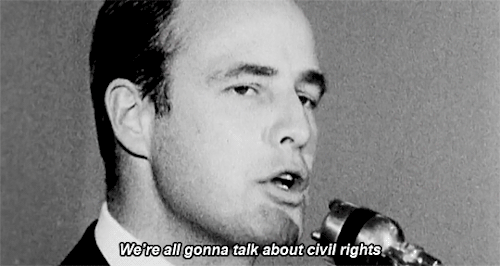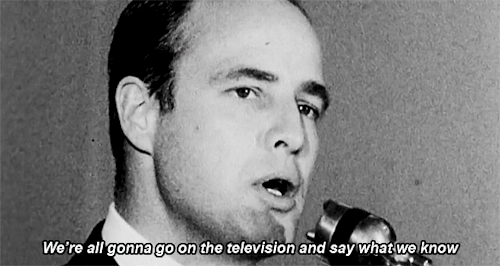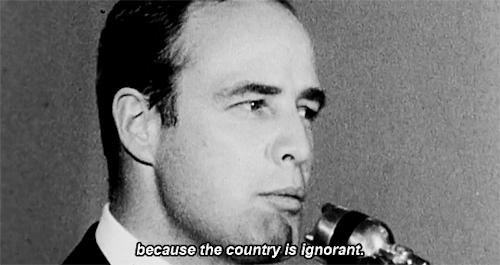Lord Of The Rings Was Published In The Fifties, And Largely Written In The Forties. Tolkien’s Opinions
Lord of the Rings was published in the fifties, and largely written in the forties. Tolkien’s opinions on society and morality and technology are at some points genuinely more conservative than what I’m comfortable with. And yet, the more I think about it, the more sure I am that Tolkien actually deconstructs most of the clichéd fantasy tropes he supposedly originates. Some examples.
The long-lost heir is not the hero, he’s a side character who deliberately uses himself as a decoy.
The real hero actually fails in his quest, his goodness and determination and willpower utterly fail in the face of evil, and the world is saved by a series seemingly unrelated good deeds.
The central conflict is not between destroying the world and preserving it. An age of the world will come to an end, and many great and beautiful things will perish, whether the heroes win or lose. The past may have been glorious, but preserving it is impossible, and returning to it is impossible, time has passed and the world has moved on. The king returns, but the elves are gone and magic fades from the very substance of Middle Earth. The goal is not to preserve the status quo, the goal is the chance to rebuild something on the ruins.
Killing the main villain seems to instantly solve the problem, eradicate all enemies and fix the world, except it doesn’t, not wholly, since the scouring of the Shire still has to happen.
Also, the hero gets no real reward, and what he gets, he cannot really enjoy. He is hurt by his ordeal, and never fully recovers.
There is a team of heroes, a classic adventuring party, except the Fellowship is together for less one sixth of the series. The Fellowship is intact from the Council of Elrond to Gandalf’s death, four chapters. The remaining eight are together until Boromir’s death, an additional six chapters. This is nothing compared to LOTR’s length of sixty-one chapters, if I count correctly.
Tolkien is not classic high fantasy. If you actually think about it, there is very little magic. The hobbits’ stealth is not magical, most elven wonders are not unambigously magical, wizards are extremely rare, and even Gandalf hardly uses magic if you compare him to the average DnD wizard. Most magic is indistinguishable from craft, there is no clear difference between a magic armor and a very good armor, between magic bread and very good bread, between magical healing and competent first-aid plus a few kind words.
TLDR: Stop praising recent fantasy for deconstructing Tolkien if they’re “deconstructing” something Tolkien has never actually constructed.
More Posts from Vcsupertramp and Others










Street Art: Before & After.
Wise words



“I am really moved and motivated by things that occur that are unjust. I’ve always hated people trampling on other people. I was in quandary, a philosophical quandary, because I tought, if I’m not my brother’s keeper, who am I? Where does my life end and my sense of responsibility for other lives begin?” Listen to Me Marlon (2015) dir. Stevan Riley
The Social Network
Reblog with the movie or show that got you into film
I’ll start.
Lord of the Rings



I love it when I click on a recipe link because it sounds yummy and instead of a recipe I get a several page dissertation on a food blogger’s boredom with her marriage and lies she was told in childhood
Writing advice from my uni teachers:
If your dialog feels flat, rewrite the scene pretending the characters cannot at any cost say exactly what they mean. No one says “I’m mad” but they can say it in 100 other ways.
Wrote a chapter but you dislike it? Rewrite it again from memory. That way you’re only remembering the main parts and can fill in extra details. My teacher who was a playwright literally writes every single script twice because of this.
Don’t overuse metaphors, or they lose their potency. Limit yourself.
Before you write your novel, write a page of anything from your characters POV so you can get their voice right. Do this for every main character introduced.
Keep this in mind the next time you are about to repeat a rumor or spread gossip.
In ancient Greece (469 – 399 BC), Socrates was widely lauded for his wisdom. One day an acquaintance ran up to him excitedly and said, “Socrates, do you know what I just heard about Diogenes?”
“Wait a moment,” Socrates replied, “Before you tell me I’d like you to pass a little test. It’s called the Triple Filter Test.”
“Triple filter?” asked the acquaintance.
“That’s right,” Socrates continued, “Before you talk to me about Diogenes let’s take a moment to filter what you’re going to say. The first filter is Truth. Have you made absolutely sure that what you are about to tell me is true?”
“No,” the man said, “Actually, I just heard about it.”
“All right,” said Socrates, “So you don’t really know if it’s true or not. Now let’s try the second filter, the filter of Goodness. Is what you are about to tell me about Diogenes something good?”
“No, on the contrary…”
“So,” Socrates continued, “You want to tell me something about Diogenes that may be bad, even though you’re not certain it’s true?”
The man shrugged, a little embarrassed. Socrates continued, “You may still pass the test though, because there is a third filter, the filter of Usefulness. Is what you want to tell me about Diogenes going to be useful to me?”
“No, not really.”
“Well,” concluded Socrates, “If what you want to tell me is neither True nor Good nor even Useful, why tell it to me or anyone at all?”
The man was bewildered and ashamed. This is an example of why Socrates was a great philosopher and held in such high esteem.
It also explains why Socrates never found out that Diogenes was banging his wife.









You are probably going to be a very successful computer person. But you’re going to go through life thinking that girls don’t like you because you’re a nerd. And I want you to know, from the bottom of my heart, that that won’t be true. It’ll be because you’re an asshole.
The Social Network (2010) dir. David Fincher
When insults had class
These glorious insults are from an era before the English language got boiled down to 4-letter words. A member of Parliament to Disraeli: “Sir, you will either die on the gallows or of some unspeakable disease”. “That depends, Sir,“ said Disraeli, “whether I embrace your policies or your mistress.” “He had delusions of adequacy.” - Walter Kerr “He has all the virtues I dislike and none of the vices I admire.”- Winston Churchill “I have never killed a man, but I have read many obituaries with great pleasure.” -Clarence Darrow “He has never been known to use a word that might send a reader to the dictionary.” - William Faulkner (about Ernest Hemingway). “Thank you for sending me a copy of your book; I’ll waste no time reading it.” - Moses Hadas “I didn’t attend the funeral, but I sent a nice letter saying I approved of it.” - Mark Twain “He has no enemies, but is intensely disliked by his friends..” - Oscar Wilde “I am enclosing two tickets to the first night of my new play; bring a friend…. if you have one.” (George Bernard Shaw to Winston Churchill) “Cannot possibly attend first night, will attend second …. if there is one.“ (Winston Churchill, in response.) “I feel so miserable without you; it’s almost like having you here.” - Stephen Bishop “He is a self-made man and worships his creator.” - John Bright “I’ve just learned about his illness. Let’s hope it’s nothing trivial.” - Irvin S. Cobb “He is not only dull himself; he is the cause of dullness in others.” - Samuel Johnson “He is simply a shiver looking for a spine to run up.” - Paul Keating “In order to avoid being called a flirt, she always yielded easily.” - Charles, Count Talleyrand “He loves nature in spite of what it did to him.” - Forrest Tucker “Why do you sit there looking like an envelope without any address on it?” -Mark Twain “His mother should have thrown him away and kept the stork.” - Mae West “Some cause happiness wherever they go; others, whenever they go.” - Oscar Wilde “He uses statistics as a drunken man uses lamp-posts… for support rather than illumination.” Andrew Lang (1844-1912) “He has Van Gogh’s ear for music.” - Billy Wilder “I’ve had a perfectly wonderful evening. But this wasn’t it.” Groucho Marx
-
 impyspark liked this · 2 weeks ago
impyspark liked this · 2 weeks ago -
 fracturedgems liked this · 2 weeks ago
fracturedgems liked this · 2 weeks ago -
 antivanwine14 liked this · 2 weeks ago
antivanwine14 liked this · 2 weeks ago -
 antivanwine14 reblogged this · 2 weeks ago
antivanwine14 reblogged this · 2 weeks ago -
 octubreazul reblogged this · 2 weeks ago
octubreazul reblogged this · 2 weeks ago -
 sir-walton-goggins liked this · 3 weeks ago
sir-walton-goggins liked this · 3 weeks ago -
 allergic--to--people reblogged this · 3 weeks ago
allergic--to--people reblogged this · 3 weeks ago -
 hermitetricoteuse reblogged this · 3 weeks ago
hermitetricoteuse reblogged this · 3 weeks ago -
 happyfestus reblogged this · 4 weeks ago
happyfestus reblogged this · 4 weeks ago -
 dysquirkinix reblogged this · 1 month ago
dysquirkinix reblogged this · 1 month ago -
 dysquirkinix liked this · 1 month ago
dysquirkinix liked this · 1 month ago -
 t-rexseesyoursins reblogged this · 1 month ago
t-rexseesyoursins reblogged this · 1 month ago -
 asala-soul reblogged this · 1 month ago
asala-soul reblogged this · 1 month ago -
 clerickobold liked this · 1 month ago
clerickobold liked this · 1 month ago -
 toooldtotobedoingthis reblogged this · 1 month ago
toooldtotobedoingthis reblogged this · 1 month ago -
 octubreazul liked this · 1 month ago
octubreazul liked this · 1 month ago -
 charming-butt-insane reblogged this · 1 month ago
charming-butt-insane reblogged this · 1 month ago -
 charming-butt-insane liked this · 1 month ago
charming-butt-insane liked this · 1 month ago -
 phantomas67 reblogged this · 1 month ago
phantomas67 reblogged this · 1 month ago -
 murphymakestherules reblogged this · 1 month ago
murphymakestherules reblogged this · 1 month ago -
 murphymakestherules liked this · 1 month ago
murphymakestherules liked this · 1 month ago -
 kashirax2 reblogged this · 1 month ago
kashirax2 reblogged this · 1 month ago -
 kashirax2 liked this · 1 month ago
kashirax2 liked this · 1 month ago -
 snowrose24 reblogged this · 1 month ago
snowrose24 reblogged this · 1 month ago -
 sweetheartssecretblog reblogged this · 1 month ago
sweetheartssecretblog reblogged this · 1 month ago -
 thelaughingpanda liked this · 1 month ago
thelaughingpanda liked this · 1 month ago -
 dreamofuniverses liked this · 1 month ago
dreamofuniverses liked this · 1 month ago -
 isylikes reblogged this · 1 month ago
isylikes reblogged this · 1 month ago -
 isyhawk liked this · 1 month ago
isyhawk liked this · 1 month ago -
 shouldntbearevolution liked this · 1 month ago
shouldntbearevolution liked this · 1 month ago -
 othervee liked this · 1 month ago
othervee liked this · 1 month ago -
 ziusik liked this · 1 month ago
ziusik liked this · 1 month ago -
 eviesos reblogged this · 1 month ago
eviesos reblogged this · 1 month ago -
 elemmire88 liked this · 1 month ago
elemmire88 liked this · 1 month ago -
 dragonanarchist1155 liked this · 1 month ago
dragonanarchist1155 liked this · 1 month ago -
 aubrietarose reblogged this · 1 month ago
aubrietarose reblogged this · 1 month ago -
 aubrietarose liked this · 1 month ago
aubrietarose liked this · 1 month ago -
 nonametis reblogged this · 1 month ago
nonametis reblogged this · 1 month ago -
 aredhel-erinti liked this · 1 month ago
aredhel-erinti liked this · 1 month ago -
 bequeerspreadfear reblogged this · 1 month ago
bequeerspreadfear reblogged this · 1 month ago -
 nevichaos reblogged this · 1 month ago
nevichaos reblogged this · 1 month ago -
 margotdanslebois reblogged this · 1 month ago
margotdanslebois reblogged this · 1 month ago -
 apartment8b liked this · 1 month ago
apartment8b liked this · 1 month ago -
 mothecho reblogged this · 1 month ago
mothecho reblogged this · 1 month ago -
 libitina2 reblogged this · 1 month ago
libitina2 reblogged this · 1 month ago -
 libitina2 liked this · 1 month ago
libitina2 liked this · 1 month ago -
 aliasblack73 liked this · 1 month ago
aliasblack73 liked this · 1 month ago -
 abbotbee reblogged this · 1 month ago
abbotbee reblogged this · 1 month ago -
 abbotbee liked this · 1 month ago
abbotbee liked this · 1 month ago
Wanderer, there is no way, you make the way as you go... Just a wanderer enjoying the rollercoaster.
176 posts